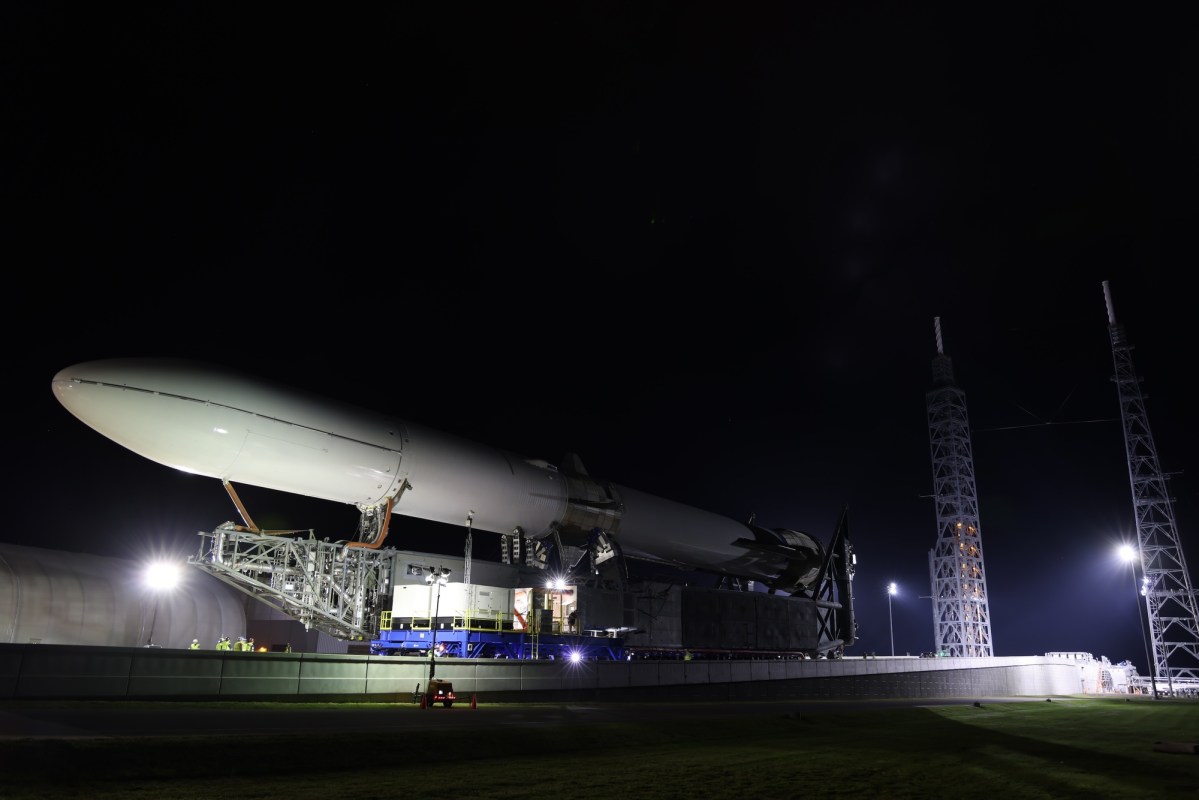WASHINGTON — As Blue Origin nears the first launch of its New Glenn rocket, founder Jeff Bezos said he is not worried Elon Musk’s influence on the incoming Trump administration will adversely affect the company.
In an on-stage interview at the New York Times DealBook Summit Dec. 4, Bezos downplayed any concerns that Musk might use the current close relationship he has with the president-elect to give SpaceX an edge over competitors, like Blue Origin.
“I take at face value what has been said, which is that he is not going to use his political power to advantage his own companies or to disadvantage his competitors,” he said of Musk. “I could be wrong about that, but I think it could be true.”
Bezos added he supported the so-called “Department of Government Efficiency,” the committee co-chaired by Musk and Vivek Ramaswamy that will study ways to reduce federal spending and cut regulations.
“I’ve had a lot of success in life not being cynical. I’ve very rarely been taken advantage of as a result,” he said. “Why be cynical about that? Let’s go into it hoping that the statements that have been made are correct, that this is going to be done aboveboard and in the public interest, and if that turns out to be naïve, well, we’ll see.”
The interview took place hours after President-elect Trump announced his intent to nominate Jared Isaacman to be administrator of NASA. Isaacman, the billionaire founder of a financial payments company, commanded two private astronaut missions flown by SpaceX, and has close ties to Musk.
Isaacman, in a social media post earlier this year, said that he didn’t like NASA’s decision to make a second Artemis Human Landing System award to Blue Origin after previously selecting SpaceX. However, he was also complimentary of the company in another comment in October, stating that it “has a very committed founder that will invest heavily to ensure there are choices” in launch. Bezos wasn’t asked about Isaacman’s selection to lead NASA in the DealBook interview.
Bezos called SpaceX “very able competitors,” although there is, in many respects, a yawning gap between the two companies. SpaceX has conducted more than 120 orbital launches so far this year of its Falcon 9 and Falcon Heavy vehicles. Blue Origin, by contrast, has yet to attempt its first orbital launch of its New Glenn rocket.
He said the company was getting “very, very close” to a first flight of New Glenn. The rocket is at Cape Canaveral’s Launch Complex 36 for testing that is expected to include a static-fire test of the first stage’s seven BE-4 engines, one of final milestones before a launch.
“It’s literally on the pad now waiting for regulatory approval. It’s waiting for its final regulatory to launch, so we’re very, very close,” he said. That approval would be in the form of a Federal Aviation Administration launch license, which the agency has not yet issued. Bezos was not more specific about when the company would attempt a first launch, although executives have previously stated a goal of launching before the end of the year.
Bezos remained confident about the future of Blue Origin, saying the company has “a lot of runway” given that he can continue to finance it through sales of Amazon.com shares. “Blue Origin is going to do some amazing things here.”
“It’s not a very good business yet,” he acknowledged, but offered high aspirations for it. “From a business point of view, from a financial returns point of view, I think it’s going to be the best business I’ve ever been involved in, but it’s going to take a while.”
He confirmed that meant he thought the company would ultimately be bigger than Amazon, which had a market cap as of the close of trading Dec. 4 of about $2.3 trillion.
